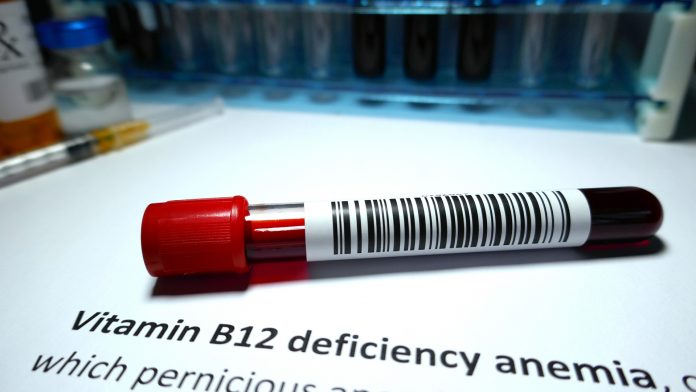
A new study finds that vitamin B12 deficiency in infants leads to poor motor development and anaemia.
New research from Burkina Faso conducted by the University of Copenhagen and Médecins Sans Frontières has discovered a link between B12 deficiency in infants and reduced motor development and anaemia.
In Denmark, cases of poor psychomotor development are regularly seen in young children raised on vegan diets, however, such outcomes are preventable with daily B12 supplements. In low-income countries, B12 deficiency in infants is more prevalent. This is reflected in widespread B12 deficiency in infants in Burkina Faso. The results have been published in the journal Plos Medicine.
The impact of B12 deficiency in infants
B12 is crucial for brain development in young children and can damage the nervous system. B12 deficiency in infants can also cause anaemia.
“Among the many children who participated in our study, we found a strong correlation between vitamin B12 deficiency and poor motor development and anaemia,” said Henrik Friis, first author of the study and a professor at the University of Copenhagen’s Department of Nutrition, Exercise and Sports.
“B12 deficiency is one of the most overlooked problems out there when it comes to malnutrition. And unfortunately, we can see that the food relief we provide today is not up to the task.”
1,000 children with acute malnutrition aged between six to 23 months participated in the study. The levels of B12 were measured both before and after three months of daily food relief rations containing the recommended B12 content. When the study began, two-thirds of the children had either low or marginal levels of B12.
Is three months food relief enough?
“During the period when children were provided with food relief, their B12 levels increased before decreasing considerably once we stopped the programme. Despite provisioning them with food relief for three months, their stores remained far from topped up. This is when a typical food relief programme only runs for four weeks,” commented Henrik Friis.
Following three months of food relief, the researchers found B12 deficiency in infants remained. One-third of the children continued to have low or marginal levels of B12 stored. This indicates that there is a cap on how much B12 can be absorbed.
“A child’s gut can only absorb one microgram of B12 per meal. So, if a child is lacking 500 micrograms, it will take much longer than the few weeks that they have access to emergency food relief,” explained Vibeke Brix Christensen, a paediatrician and medical advisor to Médecins Sans Frontières and co-author of the study.
“Furthermore, longer-term relief programmes aren’t realistic, as humanitarian organisations are trying to reduce the duration of treatment regimens with the aim of being able to serve a larger number of children for the same amount of money,” continued Vibeke Brix Christensen.
She pointed out that it might make a difference to divide the necessary amount of vitamin B12 across several meals, which would probably allow children to absorb the same amount of B12 each time. But the problem is that if widespread B12 deficiency appears among children in low-income countries, it is difficult to do anything about it.
Finding a new solution
“The problem in low-income countries is poorly resourced and weak health care systems. Handing out tablets to millions and millions of people is not cost-effective. And to enrich foods with B12, it must be added to foodstuffs that are accessible to the poor. This requires industrial expansion, as many people currently eat only what they can produce themselves. Furthermore, it requires legislation that is not based on voluntary participation,” said Henrik Friis.
“Individual households could be incentivised to keep chickens and perhaps goats, which a mother could manage and use to provide access to animal-based foodstuffs. Finally, work needs to be done to develop fermented products with B12 producing bacteria — something that doesn’t yet exist, but towards which researchers and companies are already working,” concluded Henrik Friis.
























